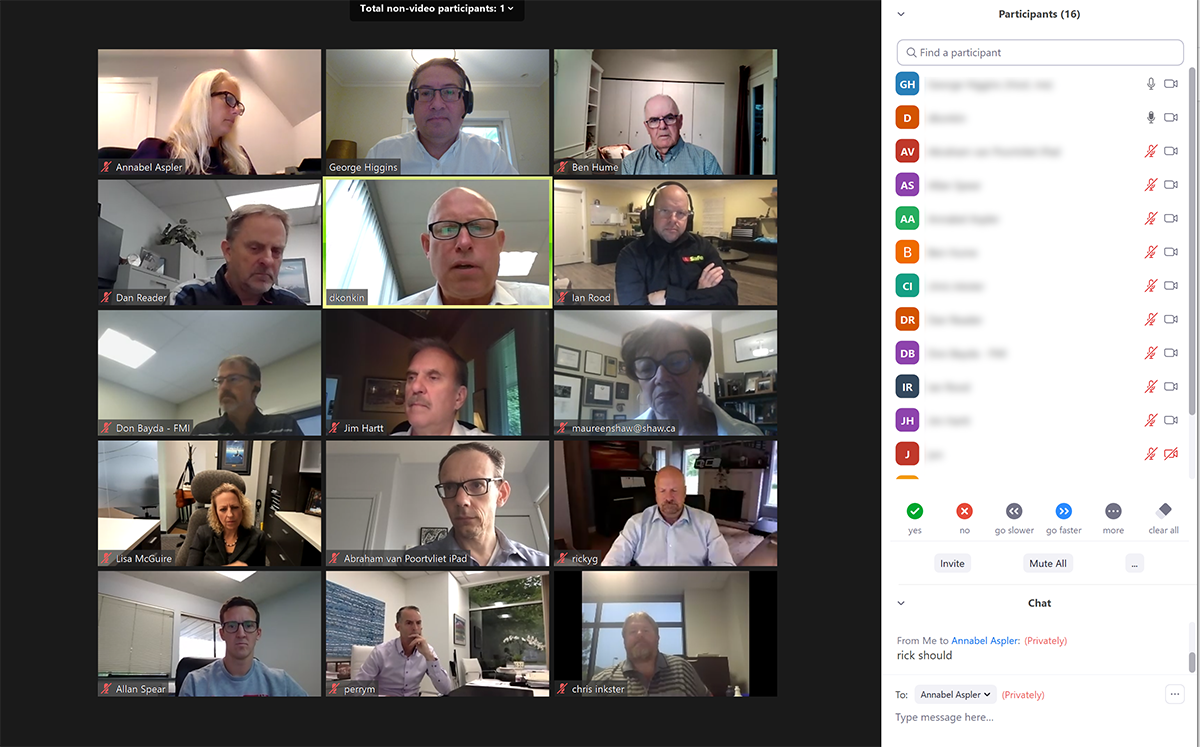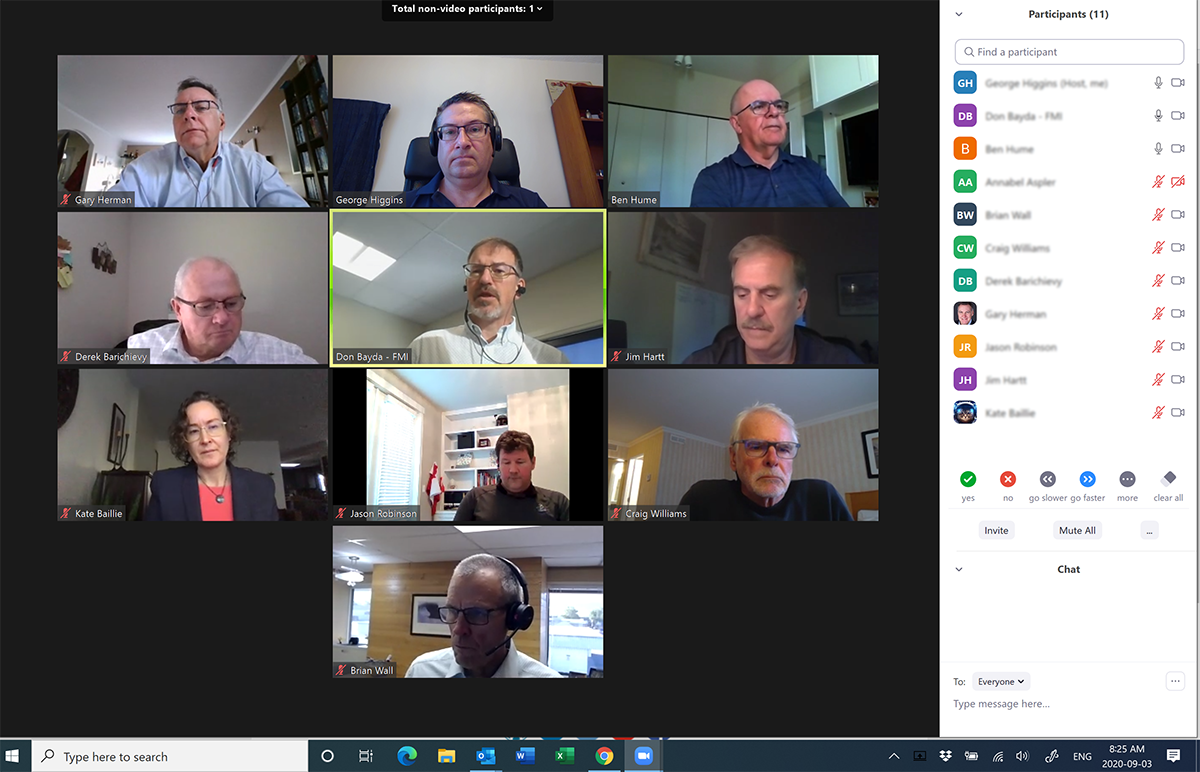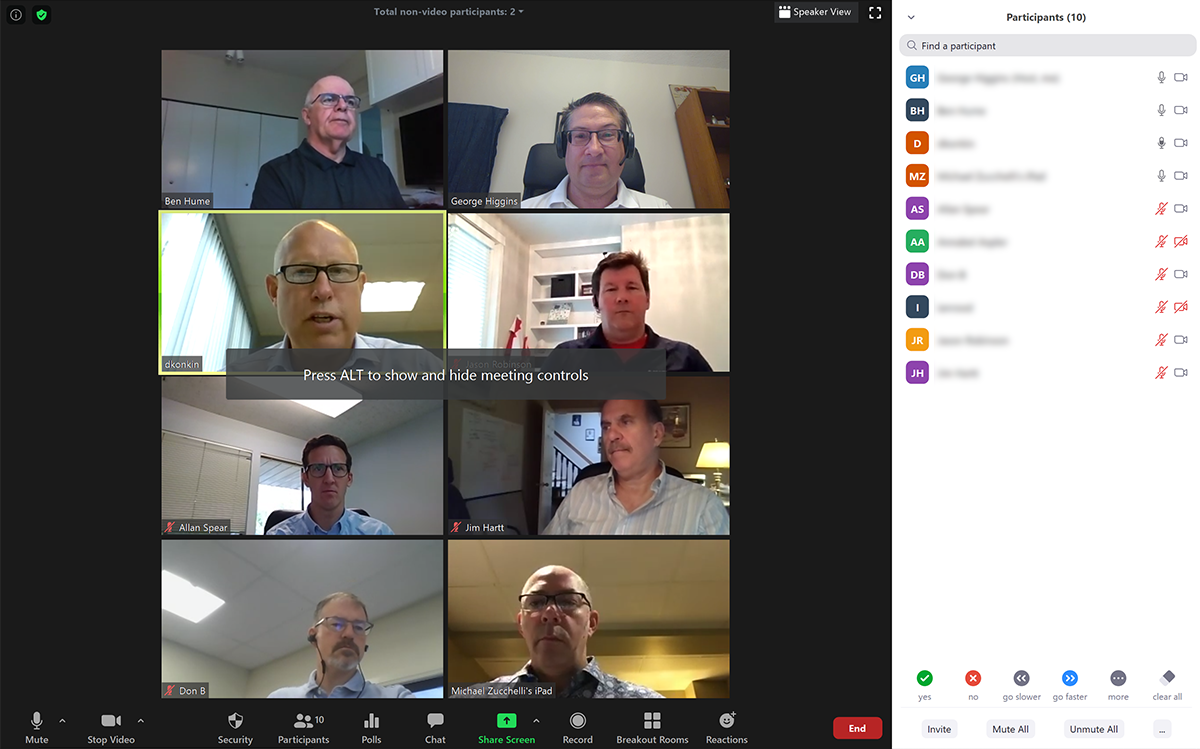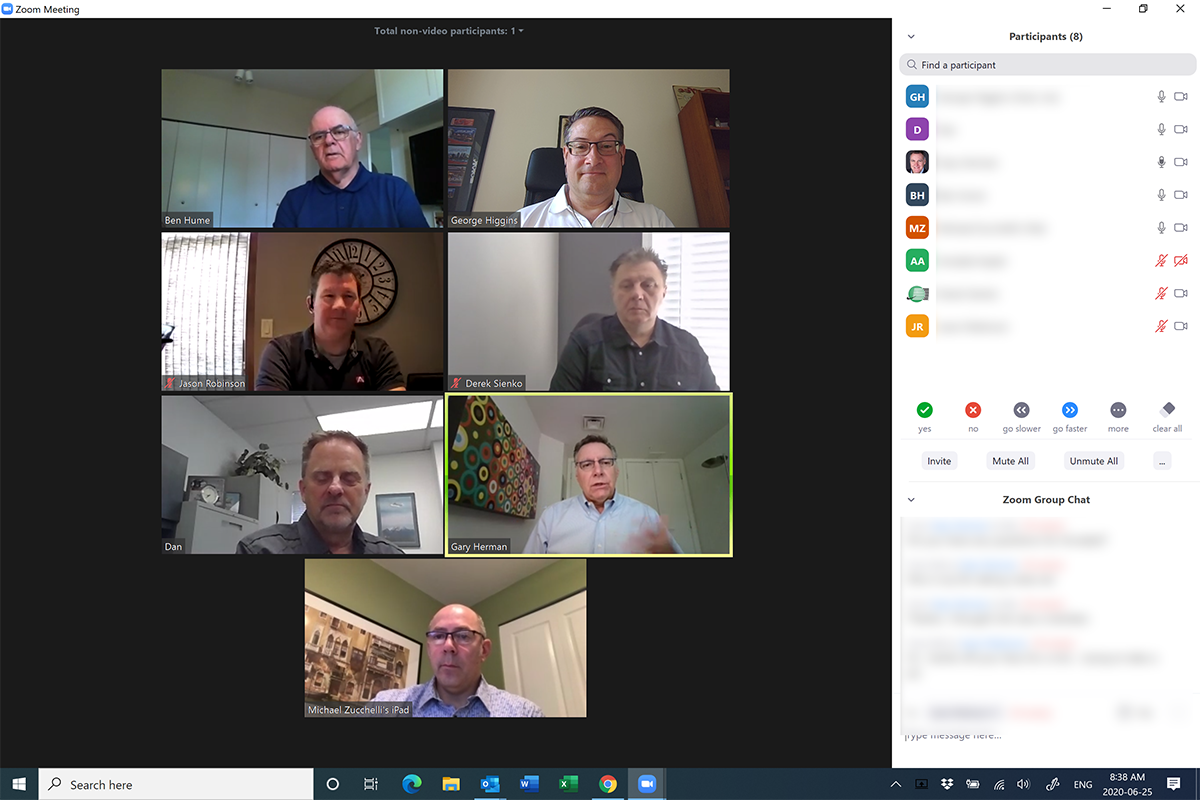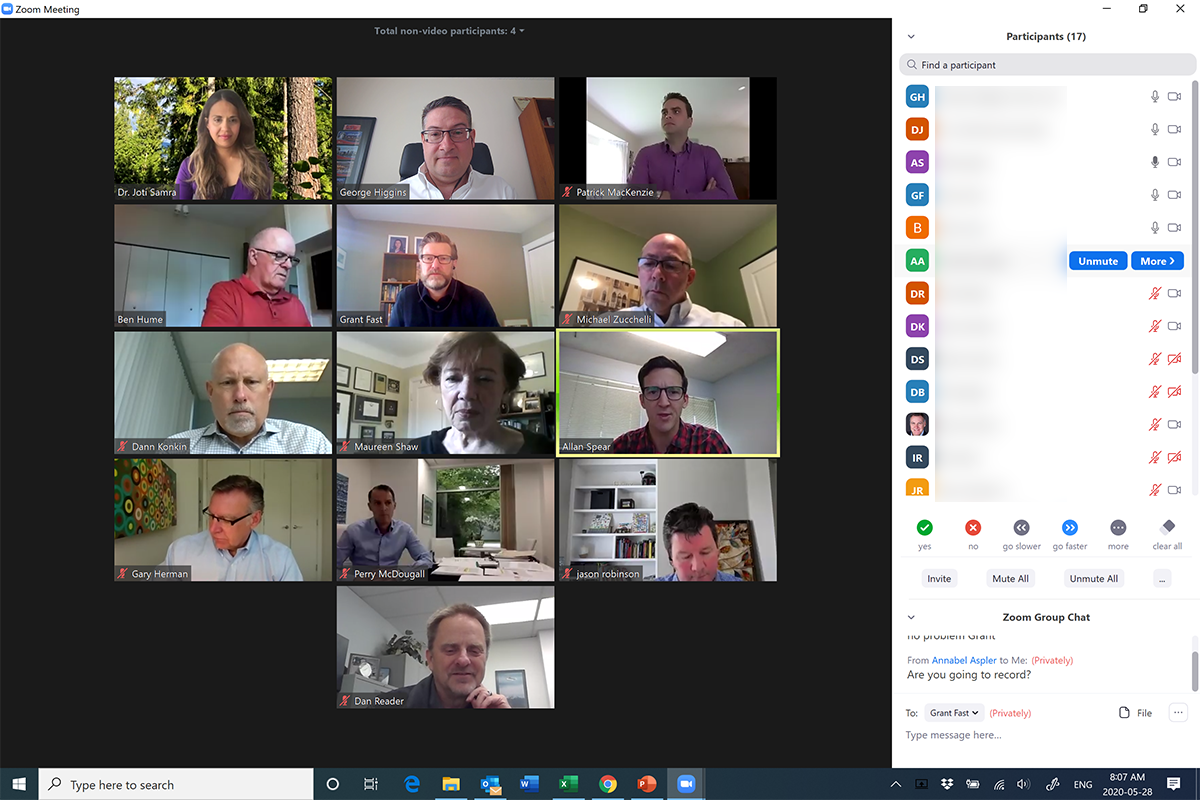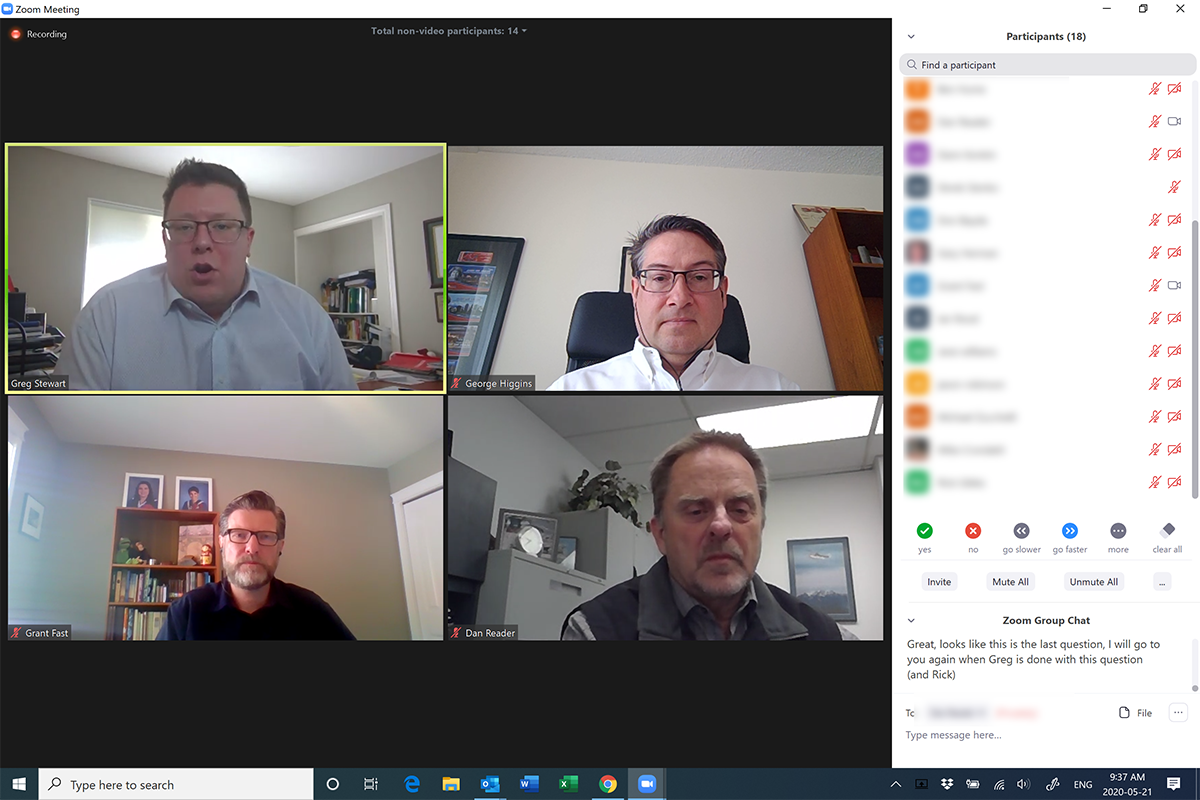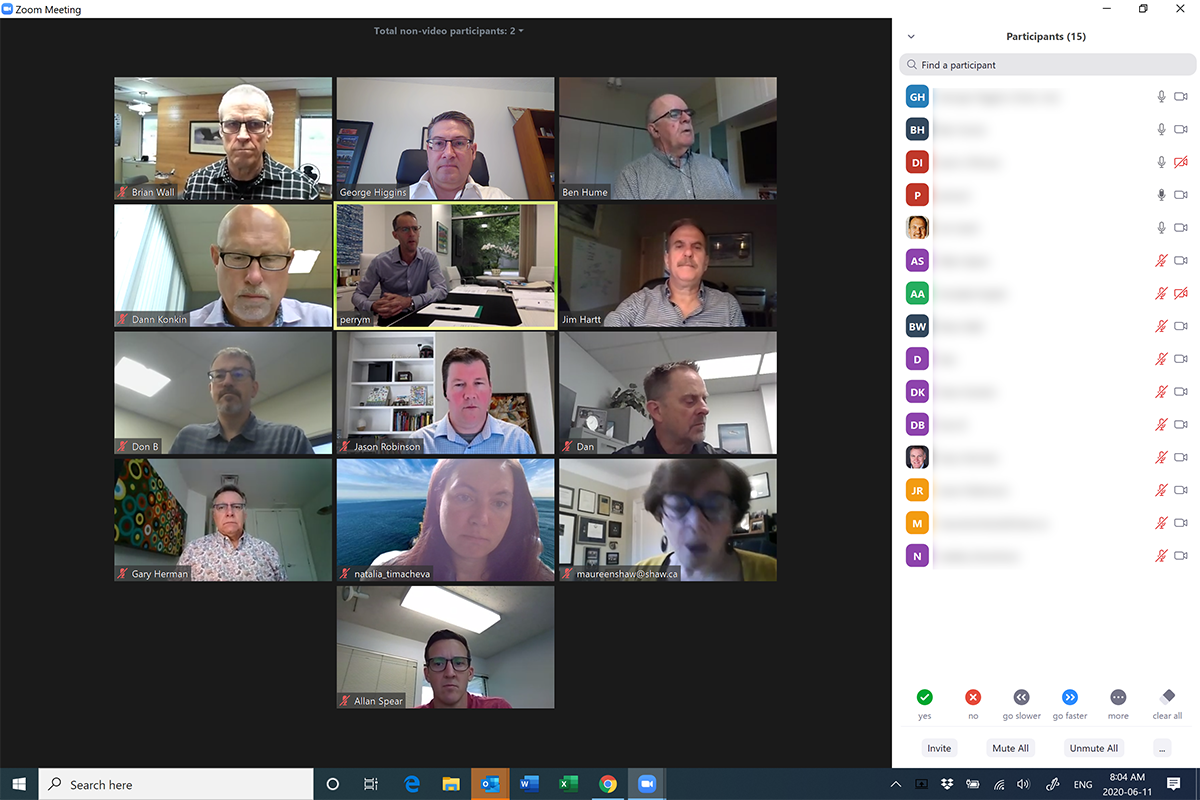
Today’s Virtual Breakfast Forum was the most attended to date (apart from guest speaker events), with representation from the Lower Mainland, Kelowna, Victoria and Nanaimo. Our discussions revolved around the reopening of the BC Economy, with call attendees sharing their organizations’ new policies, concerns and best practices.
The majority of attendees reported that they are positive about what the future holds for their organizations. Three concepts continue to remain at the top of all of our lists: regular communication, healthy leadership by example and reopening with mindfulness and caution.
Increasing the frequency of communication has resulted in a better understanding of individual concerns and personal issues among teams. One attendee reported that their organization rolled out communication on how the reopening would take place, with important reminders to avoid complacency and maintaining good health and safety practices both personally and professionally. Employees feel a sense of comfort with this knowledge and will feel more confident about what they’re coming back to.
In times of crisis, employees look at how their leaders handle situations. As leaders, you need to take care of yourselves, don’t lose the momentum of continuing with physical exercise or whatever you need to stay well and be an example for your employees.
Many employers are finding that staff working from home has significantly increased productivity. With virtual meetings now the norm, employees are no longer having to take time away from their days to travel, and an increase of attendance at meetings has been experienced. Be bold as virtual CEOs, and make a habit of connecting at least weekly with your teams. Be a part of communities such as this one (the Executive Health and Safety Council of BC), whereas a leader you can safely share your concerns and challenges with your peers.
When you begin to reopen, give people the time to reorganize and prepare for their return to work. Allow them the opportunity to organize themselves, and return as they choose. Make sure you are giving your team a window of time to help them come back. Create a new work-from-home policy and a new office policy so your employees know what is expected of them.
Each one of us as leaders or employees has unique situations, perspectives and feelings about how COVID-19 has affected us. One attendee shared that they have surveyed their front line staff to get a sense of what their concerns are and how to address them. Include your employees on decisions on how to open up. Acknowledging and respecting everyone’s uniqueness is paramount.
Some interesting topics for further discussion arose:
- the importance of working with employment lawyers to amend some areas of employment contract agreements
- large buildings with elevators and lobbies – how will this work maintain social distancing without bottlenecking?
- there will be a lot of opportunities for organizations to grow their business for those that have remained strong. Keep on the lookout for opportunities of merger and acquisitions of other organizations that come available
Join us on June 25th for our next Virtual Breakfast Forum.

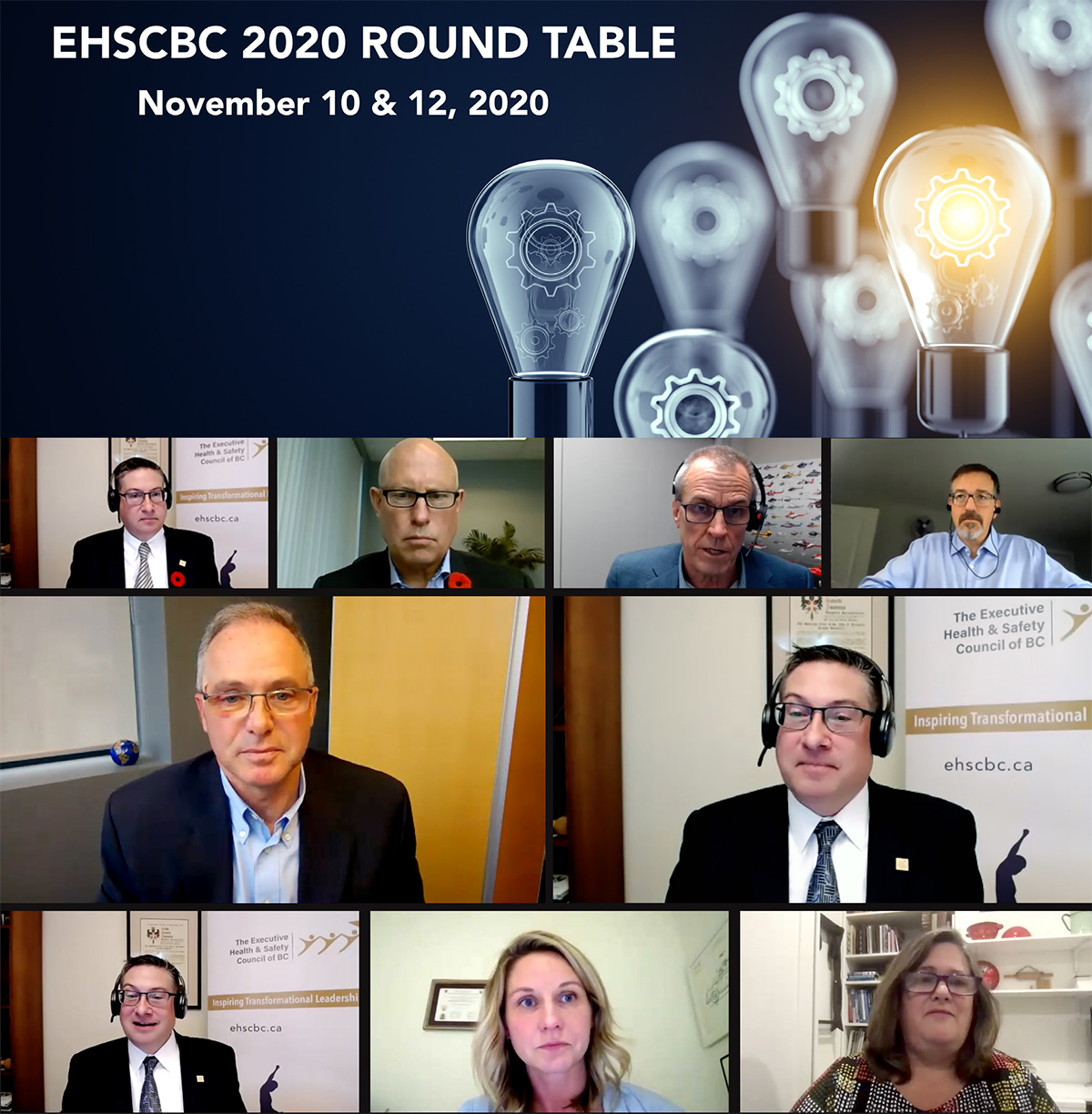 The Executive Health and Safety Council had a phenomenal first year, capped off by the annual 2020 Round Table. This year over 95 registrants from across the province attended “virtually”, to share and learn from each others’ experiences. By all accounts this event was very well received, both by members and their guests.
The Executive Health and Safety Council had a phenomenal first year, capped off by the annual 2020 Round Table. This year over 95 registrants from across the province attended “virtually”, to share and learn from each others’ experiences. By all accounts this event was very well received, both by members and their guests.
